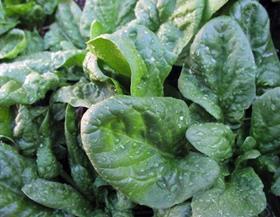
The Japanese government has urged people living in Fukushima not to eat several types of leafy vegetables grown in the prefecture where crews are battling to bring a damaged nuclear plant under control.
The warning came after radiation levels exceeding safety standards were found in 11 types of vegetables, including broccoli, spinach, cabbage and cauliflower, from areas around the tsunami-damaged Fukushima Daiichi plant in Fukishma prefecture, around 240km north of Tokyo.
No vegetables produced in open fields have been shipped from the prefecture since 21 March, and local producers have been ordered not to send the goods to market.
In the neighbouring prefecture of Ibaraki, producers have been told to halt shipments of milk and parsley with immediate effect under similar safety precautions.
'Even if these foods are temporarily eaten, there is no health hazard,” said Japanese Cabinet Secretary Yukio Edano. 'But unfortunately, as the situation is expected to last for the long-term, we are asking that shipments stop at an early stage, and it is desirable to avoid intake of the foods as much as possible.'
The Japanese Health Ministry claimed that consuming 100g of the vegetable with the largest detected amount of radioactive materials for around 10 days would equate to ingesting half the amount of radiation a person typically receives from the natural environment in a year.
Meanwhile, the US has become the first country to block food imports from Japan’s radiation zone. The US Food and Drug Administration has announced that fresh fruit and vegetables and all milk and milk products from four Japanese prefectures - Fukushima, Ibaraki, Tochigi and Gunma - would be stopped from entering the US.
Several countries including China, Taiwan, South Korea and Singapore have already been performing rigorous checks of Japanese food imports.



